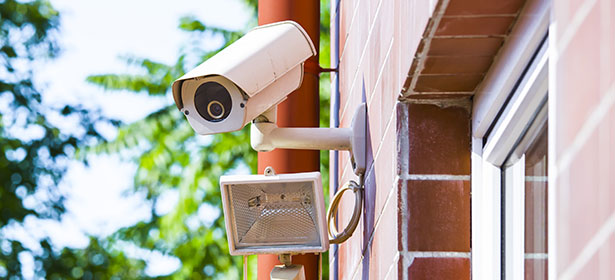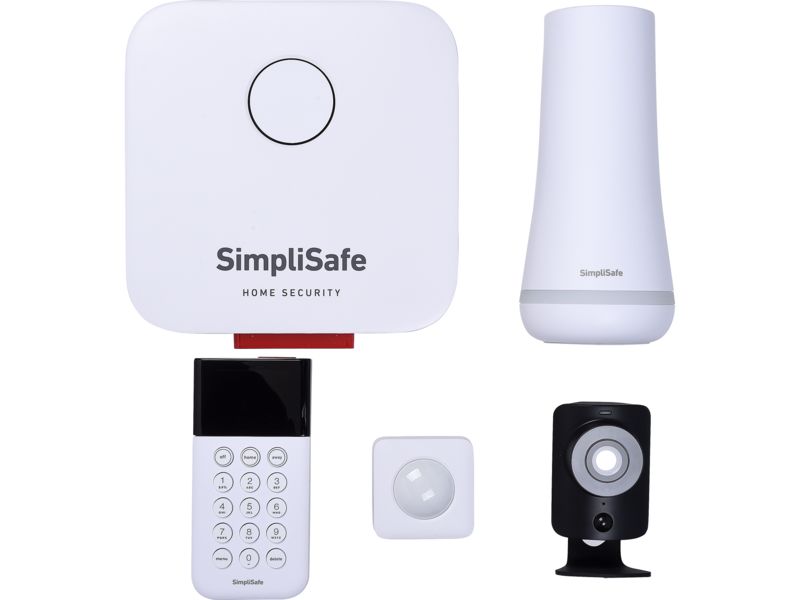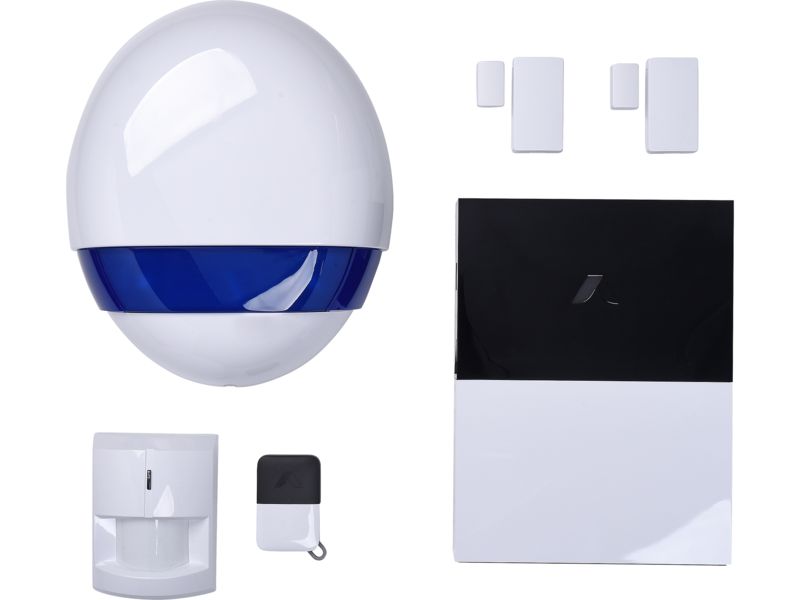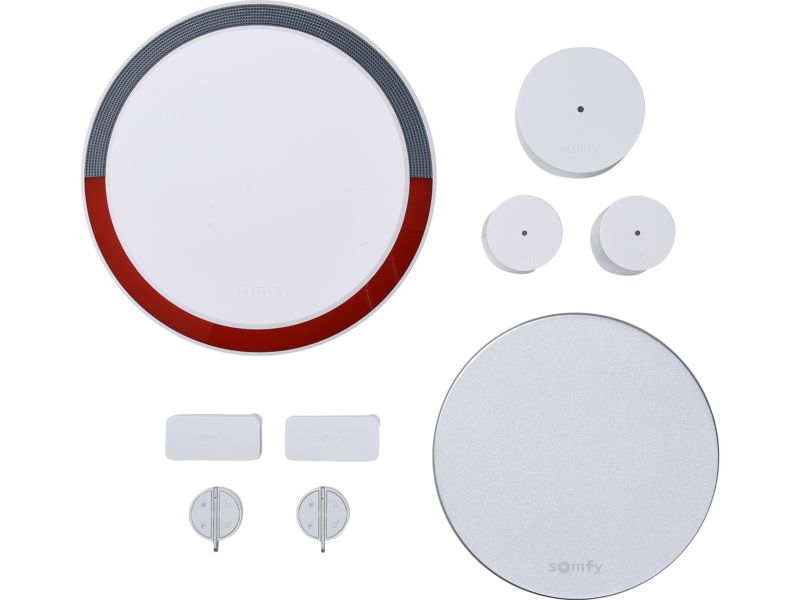By clicking a retailer link you consent to third-party cookies that track your onward journey. If you make a purchase, Which? will receive an affiliate commission, which supports our mission to be the UK's consumer champion.
Home CCTV: should you invest in CCTV?

CCTV has been a common fixture in shops, pubs, car parks and other public places for years. Now, thanks to easier installation and falling prices, it’s becoming an increasingly popular choice for security-conscious homeowners.
You can either go for a full CCTV system that usually requires professional installation and infrastructure to run it. Or you can go for the typically cheaper option of a wireless security camera that is operated by an app on your smartphone.
If you're thinking about getting a burglar alarm, visit our pages on the best burglar alarms and the burglar alarm and installation costs to find out more.
From break-ins to contents cover, check out the best home insurance policies and companies in the UK.
How to get started with CCTV
If you do opt for CCTV, you can buy cameras on their own, or as part of a whole security package. Costs range from around £20 for one wired camera with a night-vision range of 5 metres, to around £450 for a vandal-proof camera.
You will need to buy some equipment to accompany the camera, depending on what type you choose, such as connectors and a digital video recorder (DVR) to store and view the footage. You can also buy dummy cameras for around £10.
CCTV is just one line of defense against crime, and works best when combined with other measures, such as a burglar alarm, door and window locks, gravel around your property, and security lights.
If you're ready to get home CCTV installed and setup, you can use our Which? Trusted Traders search tool to find reliable traders in your area. You don't have to be a Which? member to use Which? Trusted Traders.
Security camera types compared

Wired home security cameras
These are the most common type of camera, and ones most easily recognised as traditional CCTV cameras.
They are usually fixed to a wall or outside area, and then a wire connects directly from the camera to the monitor.
The downside is that the wires, including extension cables and connectors, can be difficult to install.

Wireless security cameras
With this type of system, cameras transmit images to your computer, tablet or mobile phone, using digital technology.
Many smart security cameras link to an app that you can use to monitor your home while you're out and about.
Although we call them 'wireless', this refers to way they transmit and receive data. They sometimes need to have a physical wire to connect them to the power.
Bear in mind that your camera is only as effective as your home broadband. So, your camera coverage may be interrupted if your internet connection is lost.
See our wireless security camera system reviews to find out which models we recommend.
All tested models are checked to see if they can protect you and your data from hackers or anyone attempting to snoop on your home via the camera.
Find out more in our guide on how to stop your wireless security camera from getting hacked.
Indoor and outdoor cameras
If you want a security cameras for the outside of your home, whether that is a CCTV or wireless model, make sure that it's weatherproof and has the recommended IP rating of 66.
Wireless cameras are available that run on battery power, but otherwise you will need to wire the camera to a power source, so bear that in mind before installation.
Make sure you position your cameras where they can’t be tampered with, but are still accessible for maintenance and cleaning. You can buy vandal-proof cameras, but these tend to cost more.
Indoor CCTV cameras come in three types: wired, wireless, and powerline networked - these plug into your electrical sockets and transmit images to a storage device.
Typically, if you want an indoor security camera it's best to choose a wireless model. Browse our list of the best wireless cameras for some recommendations. Some models cost under £50, so you can even buy multiple cameras and link them together.

Home security cameras footage resolution
CCTV camera resolution is measured in lines - the higher this is, the sharper the image will be.
Image quality is also linked to the size and type of chip the camera uses. Generally speaking, smaller CMOS chips are lower quality than larger CCD ones, such as 1/4" and 1/3".
Cameras with tiny chips also tend to be able to pick up less light, and therefore produce lower-quality images in low light. The light sensitively is measured in lux, which can range from 130,000 to 0.001 lux. The lower the lux, the better the camera will be at recording when there isn't a lot of light.
You'll need high-quality images - sufficiently clear for someone to be identified - if CCTV footage is to be used as evidence in court.
For the best detail, you need a high resolution - this tends to make the camera more expensive, and can take up a lot of storage space. Also make sure the date and time used to ‘tag’ images are set accurately.
House security camera features
- Storage: Most CCTV systems use a PC hard drive or standalone digital video recorder (DVR). The main advantage of PC-connected systems is that they often come with software to view the images. Some DVR-based systems also have this facility.
- Formats: Make sure your system allows you to store images in a widely used format, such as Mpeg. Otherwise there may be problems if images need to be downloaded and viewed on other systems, such as those used by the police. In addition, if you get a camera can record high-quality images, make sure that the PC or DVR is able to record them.
- Remote access: Wireless security cameras let you check images over the internet using a PC or smartphone. Other options include email or text notifications when cameras are activated.
- Night vision: Monochrome (black and white) CCTV cameras tend to be the most effective in low light, particularly when used with integral infrared illumination – a feature found on some cameras. It’s possible to use CCTV cameras that will film in colour during the day and switch to monochrome when it gets dark. All of the best wireless security cameras will capture video effectively in both day and night time.
- Motion detection: Some CCTV cameras have a sensor that turns them on when they detect movement. This can be handy if you want to reduce the amount of footage you’re storing.
CCTV and privacy
If you’re thinking of getting a home CCTV system for the outside of your property, you must comply with privacy laws. This means making sure that your cameras aren’t pointed at public spaces, or other people’s houses or gardens.
It’s a good idea to discuss any CCTV plans with your neighbours first – some Which? members told us that they share a system with their neighbours, which might be one way to cut costs.






















